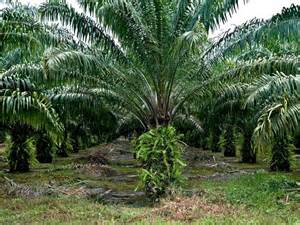
The oil palm sector of Ghna is to be re-vitalized and transformed while the environmental consequences of the production system will addressed to respond to the ever-growing demand for crude palm oil.
It is to be noted that although oil palm is indegenous to the West African sub-region, the region, utilizing about 4 million hectares of land, produces only about six per cent of global paml oil, which is hardly enough to satisfy the region’s demand.
For the Ghanaian economy, oil palm is the second most important tree crop after cocoa, with a total of 360,000 hectares of land under cultivation, 80 per cent of which are in the hands of smallholders.
The average yield of oil palm farms in Ghana is 4 tons of fresh fruits per hectare per anum, representing 25 per cent of potential pruduction— a yield considered very low and attributable to poor agronomy and limited knowledge on best management practices for oil palm cultivation.
On the other hand, palm oil is the most used vegetable oil in the world and contributes more than 31 per cent of the global production of vegetable oils, but occupies less than one per cent of the total global cultivated agricultural land.
The statistics indicate that Ghana imports over 100,000 metric tonnes of Crude Palm Oil (CPO) annually to close the huge demand gap.
Research has, however, established that an average potential farm yield of, at least, 12 tons per hectare, per annum, for existing farms, coupled with an extraction rate of 18 per cent will make Ghana self-sufficient in CPO production.
Information made available by Solidaridad — a global network organizations with a focus on stimulating sustainable supply chains through continuous improvements in production and trade relations—indicates that a substantial improvement in the oil palm sector would require a combination of measures such as upgrading agronomic and management practices on the farms; enhancing the equipment and operations of small and mid-sized mills; overcoming the challenges of lack of invesment and financing; promoting sustainable oil palm development and the reduction of environmental and social consequences of oil palm production.
As a first step in the transformation of the sector, a Palm Oil Development Board is expected to be established to facilitate development in the sector.
For an effective transformation of the sector, the role of financial institutions cannot be underestimated, as they are required to collaborate with the Ministry of Food and Agriculture (MoFA) and other stakeholders to provide technical expertise to their clients to overcome challenges such as inadequate technologies and skills, access to capital and other inputs.
Equally, Farm Services Companies are also required to support farm level activities due to aging farmer population while the youth, with funding support from the rural banks, are required to venture into the agriculture sector to reduce the burden of unemployment.
It is important to note that the Government of Ghana, through MoFA, is a partner to the Tropical Forest Alliance 2020 (TFA 2020) program dubbed: ‘The Africa Palm Oil Initiative’ which seeks to build a partnership between governments and the private sector, supported by Civil Society Organizations (CSOs), to agree and implement a set of regional principles for responsible practice across the palm oil supply chain in the region.
Accordingly, Ghana’s Ministry of Food and Agriculture (MoFA), has undertaken to collaborate with Solidaridad West Africa (SWA), a Non-Governmental Organization (NGO) that represents Solidaridad Global Network in West Africa, to ensure that the Best Management Practices approach to oil palm production at both the farm and mill levels become part of the footprint to reduce Ghana’s Crude Palm Oil (CPO) import bill.
Under the programme dubbed: ‘Sustainable West Africa Palm oil Programme (SWAPP)’ and with funding from the Dutch Embassy in Ghana, SWA has, over the past four years generated data and information, tested and validated innovations as to how the sub-sector can be developed.
SWAPP is implemented in Ghana, Nigeria and Ivory Coast with a focus on increasing the productivity and profitability of the Small to Medium-Scale Enterprises in the palm oil sector.
The first phase was introduced in 2012 and ends in the last quarter of 2016 and is expected to be extended from 2017 to 2020.
Since its inception, SWAPP has produced quality palm oil onto the market and also trained more than 2000 farmers across the three West African countries benefiting from the programme.
A conference on transforming Africa’s palm oil industry has, therefore, been organized in Accra in furtherance of the implementation of the second phase of the programme, with pledges of further support from the Canadian Ambassador to Ghana, His Excellency Mr Ron Strikker.